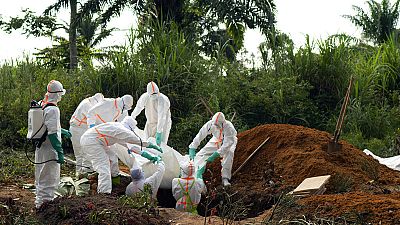Equatorial Guinea
A new provisional death toll from the Marburg virus outbreak that has been raging for nearly three months in Equatorial Guinea has risen to 11 confirmed deaths, according to a new Health Ministry report Tuesday.
The last death recorded by the authorities was due to the epidemic of this virus cousin of Ebola and almost as deadly as it was on April 3.
The ministry also mentions 15 positive cases, none of which are hospitalized, and 385 contact cases "followed" against 604 last week, said the ministry in a document dated Monday and posted on Twitter Tuesday.
Cases of the hemorrhagic fever have spread from the eastern province of Kie-Ntem, where it caused the first known deaths on January 7, to Bata, the economic capital of the small central African country, where nine cases have been confirmed, according to authorities.
Two weeks ago, the World Health Organization (WHO) called on Equatorial Guinea to report cases of the Marburg virus, fearing a potential "large-scale epidemic" that could affect neighboring Gabon and Cameroon.
WHO announced the deployment of "additional experts" and said it was "also helping Gabon and Cameroon to strengthen preparedness and response to the outbreak.
Tanzania also announced on March 21 the beginning of a Marburg epidemic, with five deaths.
The virus is transmitted to humans by fruit bats and is spread in humans through direct contact with the body fluids of infected persons, or with surfaces and materials. The case fatality rate can be as high as 88%.
There is no approved vaccine or antiviral treatment for the virus. However, supportive care - oral or intravenous rehydration - and treatment of specific symptoms increase the chances of survival.













11:15
AI drones lead breakthrough against malaria in Africa [Business Africa]
01:29
Experts warn of danger of exercising in extreme heat and humidity
Go to video
Ivory Coast announces cholera outbreak after 7 deaths
01:02
As cholera cases surge, African leaders urge local production of vaccine
01:00
New cholera outbreak in Sudan kills 172 people in a week
Go to video
WHO approves landmark pandemic agreement to improve response in event of future pandemic